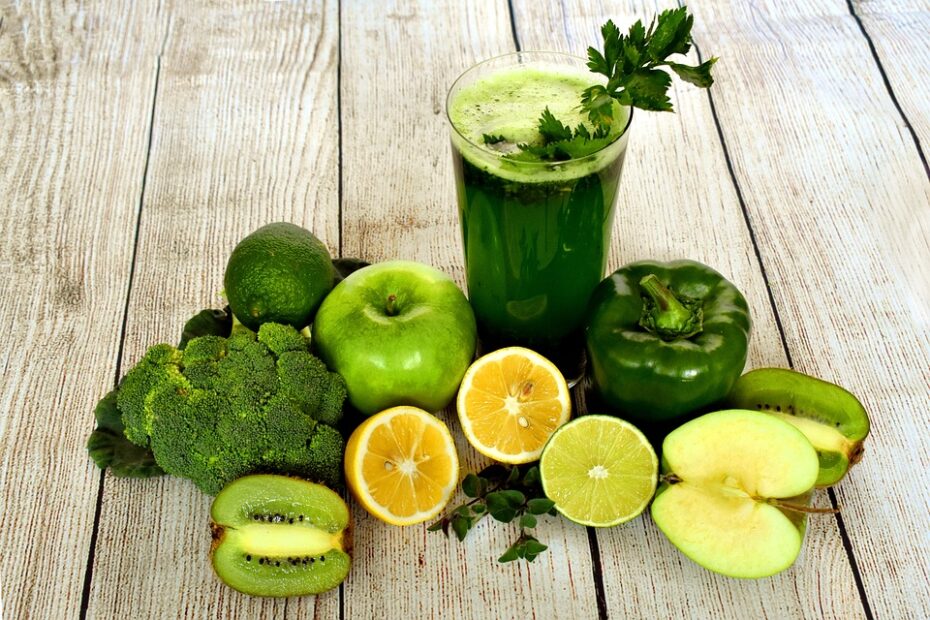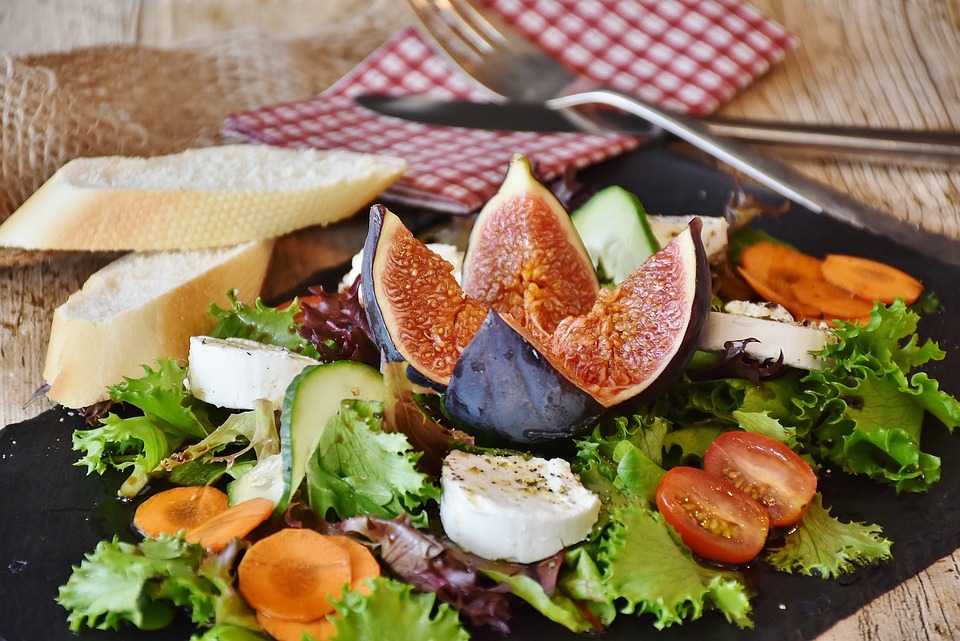gastric Bypass Ulcer Diet: What You Need to Know
Living with a gastric bypass ulcer can be challenging, but with the right diet and lifestyle changes, you can manage your symptoms and improve your overall health. In this article, we will discuss the importance of following a gastric bypass ulcer diet, what foods to include and avoid, as well as tips for preventing ulcers from forming.
Understanding Gastric Bypass Ulcers
Gastric bypass surgery is a weight loss procedure that involves creating a small pouch in the stomach and rerouting the digestive system. While this surgery can lead to significant weight loss and improved health outcomes, it can also increase the risk of developing ulcers in the digestive tract.
Gastric bypass ulcers are sores that form in the lining of the stomach or small intestine. These ulcers can cause symptoms such as abdominal pain, bloating, indigestion, and nausea. If left untreated, gastric bypass ulcers can lead to complications such as bleeding, perforation, and infection.
The Importance of a Gastric Bypass Ulcer Diet
Following a gastric bypass ulcer diet is crucial for managing symptoms and preventing complications. A diet rich in nutrients and low in irritants can help promote healing in the digestive tract and reduce inflammation. It is essential to work with a healthcare provider or dietitian to create a personalized eating plan that meets your specific needs.
Foods to Include in a Gastric Bypass Ulcer Diet
When following a gastric bypass ulcer diet, it is essential to focus on eating foods that are gentle on the digestive tract and promote healing. Some foods that are beneficial for individuals with gastric bypass ulcers include:
– Lean proteins such as chicken, fish, and tofu
– Fruits and vegetables high in antioxidants and vitamins
– Whole grains like quinoa, brown rice, and oats
– Healthy fats such as avocado, nuts, and olive oil
– Probiotic-rich foods like yogurt, kefir, and sauerkraut
These foods can help reduce inflammation, support gut health, and provide essential nutrients for healing. It is essential to listen to your body and pay attention to how certain foods make you feel to determine what works best for you.
Foods to Avoid in a Gastric Bypass Ulcer Diet
While certain foods can promote healing and reduce inflammation, others can irritate the digestive tract and exacerbate symptoms of gastric bypass ulcers. Some foods to avoid when following a gastric bypass ulcer diet include:
– Spicy foods that can trigger acid reflux and heartburn
– Acidic foods like citrus fruits and tomatoes
– Processed foods high in sugar and unhealthy fats
– Carbonated beverages that can cause bloating and discomfort
– Alcohol and caffeine that can increase stomach acid production
It is essential to avoid these trigger foods and pay attention to how your body reacts to different foods to determine what works best for you. Keeping a food journal can help track your symptoms and identify potential triggers to avoid.
Tips for Preventing Gastric Bypass Ulcers
In addition to following a gastric bypass ulcer diet, there are several lifestyle changes you can make to prevent ulcers from forming and reduce your risk of complications. Some tips for preventing gastric bypass ulcers include:
– Take medications as prescribed by your healthcare provider to reduce stomach acid and protect the lining of the stomach
– Avoid smoking and limit alcohol consumption, as these can increase the risk of developing ulcers
– Manage stress through relaxation techniques such as meditation, yoga, or deep breathing exercises
– Stay hydrated by drinking plenty of water throughout the day to promote digestion and reduce irritation in the stomach
– Practice good hygiene and avoid sharing utensils or food with others to prevent infections that can lead to ulcers
By following these tips and making healthy choices, you can reduce your risk of developing gastric bypass ulcers and improve your overall digestive health. Remember to work closely with your healthcare provider or dietitian to create a personalized plan that meets your specific needs and promotes healing in the digestive tract.
Most Asked Questions Regarding Gastric Bypass Ulcer Diet
What is a Gastric Bypass Ulcer Diet?
A Gastric Bypass Ulcer Diet is a specific eating plan designed to help individuals who have undergone gastric bypass surgery and are experiencing ulcers. This diet focuses on foods that are easy to digest and gentle on the stomach, while also providing the necessary nutrients for healing and overall health.
– Focuses on easy-to-digest foods
– Provides necessary nutrients for healing
– Designed for individuals post gastric bypass surgery
What foods should be avoided on a Gastric Bypass Ulcer Diet?
On a Gastric Bypass Ulcer Diet, it is important to avoid certain foods that can irritate the stomach lining and worsen ulcer symptoms. Foods to avoid include spicy foods, acidic foods, caffeine, alcohol, and high-fat foods. These items can increase stomach acid production and lead to discomfort for individuals with ulcers.
– Spicy foods
– Acidic foods
– Caffeine
– Alcohol
– High-fat foods
What are some recommended foods on a Gastric Bypass Ulcer Diet?
There are several foods that are recommended for individuals following a Gastric Bypass Ulcer Diet. These include lean proteins such as chicken, fish, and tofu, as well as fruits and vegetables that are low in acidity. Whole grains, low-fat dairy products, and healthy fats like avocado and olive oil are also good choices for those with ulcers.
– Lean proteins
– Fruits and vegetables low in acidity
– Whole grains
– Low-fat dairy products
– Healthy fats
How can portion control help with a Gastric Bypass Ulcer Diet?
Portion control is important for individuals following a Gastric Bypass Ulcer Diet as it can help prevent overeating and reduce the risk of irritating the stomach lining. Eating smaller, more frequent meals throughout the day can help manage ulcer symptoms and promote healing. It is also important to chew food thoroughly and eat slowly to aid digestion.
– Prevents overeating
– Reduces risk of irritating stomach lining
– Eating smaller, more frequent meals
– Chewing food thoroughly
– Eating slowly
Are there any additional tips for following a Gastric Bypass Ulcer Diet?
In addition to following the recommended foods and portion control guidelines, there are some additional tips to consider when following a Gastric Bypass Ulcer Diet. It is important to stay hydrated by drinking plenty of water throughout the day, as well as avoiding smoking and managing stress levels. Regular exercise can also help improve digestion and overall health for individuals with ulcers.
– Stay hydrated
– Avoid smoking
– Manage stress levels
– Regular exercise
– Improve digestion and overall health
Common Misconceptions about Gastric Bypass Ulcer Diet
One common Misconception about the Gastric Bypass Ulcer Diet is that it is extremely restrictive and limits the variety of foods that can be consumed. In reality, the diet focuses on eating smaller, more frequent meals and avoiding certain trigger foods that may exacerbate ulcer symptoms.
Another misconception is that following the Gastric Bypass Ulcer Diet means giving up all enjoyable foods and flavors. While it is important to limit certain foods that can irritate ulcers, there are still plenty of tasty options available that are gentle on the stomach and promote healing.
Some people believe that the Gastric Bypass Ulcer Diet is only necessary for a short period of time until the ulcer heals. However, it is important to continue following the diet recommendations even after the ulcer has healed to prevent future flare-ups and maintain gastrointestinal health.
There is a misconception that the Gastric Bypass Ulcer Diet is only relevant for individuals who have undergone gastric bypass surgery. In reality, anyone who suffers from ulcers, whether they have had surgery or not, can benefit from following the diet guidelines to manage symptoms and promote healing.
Many people mistakenly believe that the Gastric Bypass Ulcer Diet is too difficult to follow and requires strict adherence to complicated meal plans. While it does require some adjustments to eating habits, with the guidance of a healthcare provider or dietitian, it can be manageable and even enjoyable.
Addressing Misconceptions about the Gastric Bypass Ulcer Diet
To address the misconception that the Gastric Bypass Ulcer Diet is overly restrictive, it is important to emphasize that the focus is on quality over quantity when it comes to food choices. By choosing nutrient-dense, easily digestible foods, individuals can still enjoy a wide variety of flavors and textures while supporting their digestive health.
To dispel the myth that the diet is only necessary for a short period of time, healthcare providers should educate patients on the importance of long-term ulcer management. By adopting healthy eating habits and avoiding trigger foods, individuals can reduce the risk of ulcer recurrence and maintain overall gastrointestinal wellness.
To clarify that the Gastric Bypass Ulcer Diet is not exclusive to those who have had surgery, healthcare providers should stress that anyone with ulcers can benefit from following the diet recommendations. By promoting awareness and understanding of the diet’s principles, more individuals can take control of their digestive health and improve their quality of life.
To address the misconception that the diet is too difficult to follow, healthcare providers can provide practical tips and resources to help individuals navigate meal planning and food choices. By empowering patients with the knowledge and tools they need to succeed, following the Gastric Bypass Ulcer Diet can become more manageable and less daunting.
To combat the belief that the diet eliminates all enjoyable foods, healthcare providers can work with patients to identify creative ways to incorporate flavors and textures into their meals while still adhering to the diet guidelines. By encouraging experimentation and flexibility, individuals can discover new favorite dishes that support their ulcer healing and overall well-being.
conclusion
In conclusion, there are several common misconceptions about the Gastric Bypass Ulcer Diet that can create barriers to effective ulcer management. By addressing these misconceptions and providing accurate information and support, healthcare providers can help individuals make informed decisions about their dietary choices and improve their digestive health outcomes. It is important to emphasize that the Gastric Bypass Ulcer Diet is not overly restrictive, can be maintained long-term, is relevant for all individuals with ulcers, and can be manageable with the right tools and guidance. By promoting awareness and understanding of the diet’s principles, healthcare providers can empower patients to take control of their digestive health and enhance their overall quality of life.
Gastric Bypass Ulcer Diet
#gastric #bypass #surgery #experiencing #ulcers #important #follow #specific #diet #manage #heal #ulcers #guidelines #gastric #bypass #ulcer #dietbr

